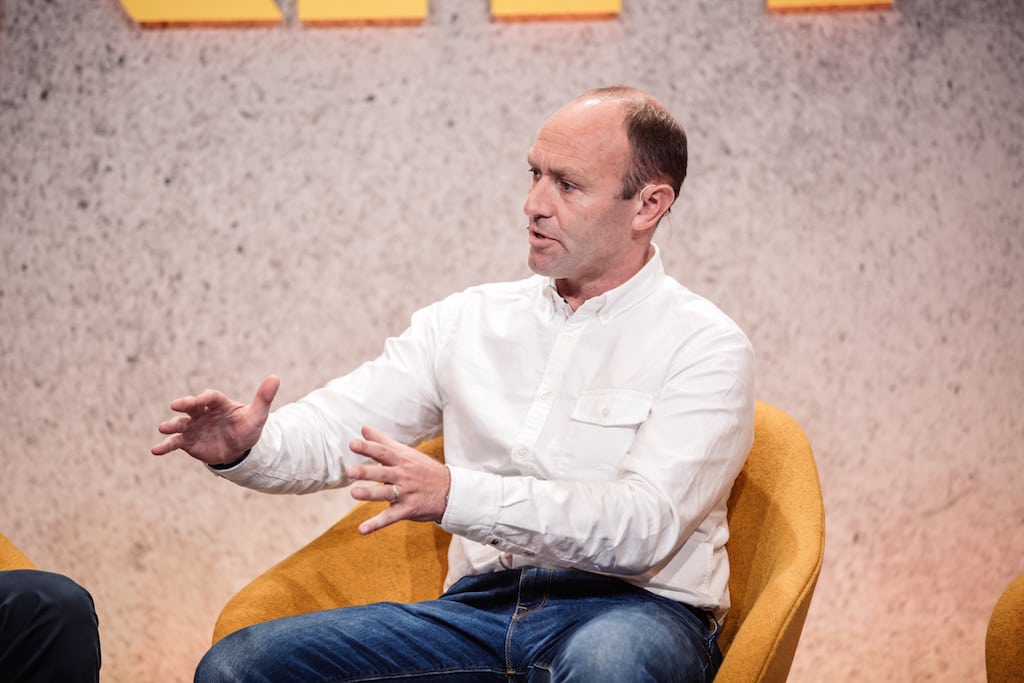Ryanair Executive Predicts Higher Fuel Prices Will Tank Some Competitors

Skift Take
Ryanair might have lost a step last year when a pilot scheduling problem forced it to cancel thousands of flights. But the airline seems to have its swagger back.
Ryanair does not want to add long-haul service partly because it expects more opportunities will open in Europe and the Middle East as some of its competitors falter and perhaps go out of business amid higher fuel prices, Ryanair chief marketing officer Kenny Jacobs said April 26 at the Skift Forum Europe in Berlin.
"The backdrop for the next three years is that more European airlines are going to go out of business," he said. "That's going to happen because aviation fuel is about $75 dollars a barrel."
Jacobs didn't name the airlines he expected to fail, but most observers suspect that any airline owned by one of Europe's three massive holding companies — Air France-KLM, Lufthansa Group or International Airlines Group — might be first to go if costs ri
